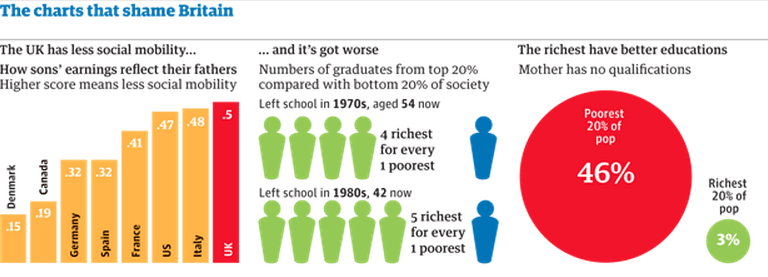“A wake-up call for a region which faces some of the most profound social and educational divides in the country.”
.
Over the weekend, the BBC reported on findings that the South West suffers from ‘profound social inequality’:
People in the south west of England face some of the “most profound social and educational divides in the country”, according to a report. Researchers at the University of Exeter discovered the region suffered from poor exam grades, low wages and limited opportunities. It said a “lack of impetus for change amongst some leaders” was “harming” the lives of residents. The government said it was taking “action” to create “well-paid jobs”. The report looked at data from Cornwall, Devon and Somerset, and was the result of a year-long review.
South West suffers from ‘profound’ social inequality, study finds – BBC News
This is from the University’s press report:
The South West suffers some of the lowest levels of social mobility in the UK, blighting the prospects of hundreds of thousands of young people across the peninsula, experts have warned.
A major new report argues national efforts to level-up opportunities should look much wider than a narrow north-south divide. It proposes practical solutions and a dedicated commission for the region to improve the life chances for future generations growing up in the area.
South West social mobility report, the result of a year-long review, warns low wages, geographical disconnection and a lack of impetus for change amongst some leaders are harming the lives of people in the South West.
The experts propose a series of bold educational interventions to help improve young lives. This includes recruiting university students to help tutor poorer pupils in local schools and trialling school-centred community hubs to coordinate help for families.
… Lee Elliot Major, the country’s first Professor of Social Mobility, based at the University of Exeter, said: “We hope that this will be a wake-up call for a region which faces some of the most profound social and educational divides in the country. Our evidence demonstrates to central Government that levelling up efforts must prioritise the South West. Improving social mobility is about ensuring that all people fulfil their potential and lead full lives in the communities they come from.”
There is indeed a great deal of social inequality and poverty even in these parts:
Poverty and unemployment in East Devon – Vision Group for Sidmouth
Levelling up in East Devon – Vision Group for Sidmouth
Here is Dr Lee Elliot Major talking about social mobility:
Social Mobility – Q&A with Dr Lee Elliot Major OBE – YouTube
Here he is warning about the issues at the beginning of the pandemic in 2020 – where he also looked at the debate behind the immediate issues:
Debates about what constitutes “fairness” relate to the very principles that underlie modern liberal democracies. The best summary of these tensions comes from the late political philosopher John Rawls, who developed a theory balancing the rival claims of equal basic rights, equality of opportunity, and safeguarding the interests of the least advantaged in society. Rawls offered a potential compromise between the principles advocated by those on the free-market right, and those on the redistributive egalitarian left.
And here he is writing in the FT last year about social class:
It’s not often you speak glowingly about accounting firms, but KPMG, despite other challenges, is now a beacon of hope when it comes to social class diversity. Its decision to set a target for the proportion of working-class staff is a well overdue first in British big corporate history and one other major companies can learn from.
As the country’s first professor of social mobility, I often get asked to advise employers who have pledged to attract, develop and celebrate people from a wide range of backgrounds. Tackling discrimination in employment practices has gone from marginal to mainstream, with multimillion-pound initiatives to improve diversity in terms of ethnicity, race and gender alongside an increasing list of other personal characteristics.
Yet social class is conspicuous for its absence in the glossy diversity and inclusion strategies. This is odd as we know socio-economic background profoundly affects people’s life chances. Research by Paul Ingram of Columbia Business School found that workers from lower social-class origins in the US were 32 per cent less likely to become managers than those from higher social-class origins. That represented a greater disadvantage than the one experienced by women compared with men (27 per cent) or black employees compared with those who are white (25 per cent).
If we are serious about diversity, we need to confront class | Financial Times
Things haven’t levelled up exactly over the past ten years:

Social mobility: the charts that shame Britain | Social mobility | The Guardian
Do the rich stay rich and the poor stay poor? | Journalism From Mars
.